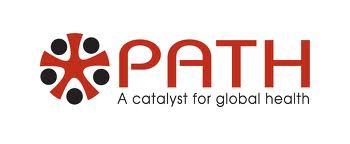Organizers: PATH
Venue: India Habitat Centre, Lodhi Road, New Delhi
January 19th – Silver Oak Room; January 20th – Magnolia Hall
Social Media Partner: India Water Portal

Description:
PATH is an international, nonprofit organization that creates sustainable, culturally relevant solutions, enabling communities worldwide to break longstanding cycles of poor health. By collaborating with diverse public- and private-sector partners, PATH helps provide appropriate health technologies and vital strategies that change the way people think and act. PATH’s work improves global health and well-being.
Through the Safe Water Project, PATH is seeking complementary solutions to sustainability and scale-up by exploring the potential for commercial enterprises to produce, distribute, sell, and maintain HWTS consumer products to low-income populations. To increase access to clean water among low-income households in the developing world, PATH is working to identify, adapt, and develop appropriate products and business models for HWTS devices. The goal is to build a sustainable commercial market for HWTS products in developing nations.The workshop will share learning and tools from PATH’s Safe Water Project and surface the experiences of other organizations that are leveraging market-based approaches to achieve a sustainable public health impact.
Objectives:
- Expansion of market for household water treatment and storage (HWTS) products for low income populations in India: The Safe Water Project is seeking to catalyze the HWTS space for provision of products and services to low income markets in developing countries to address the disease burden of diarrheal diseases. The pilot, product design and research activities conducted in the project have helped PATH collect evidence and learning about the dynamics of this proposition. PATH seeks to disseminate the results and share tools and approaches developed during the project.
- Introduce promising technology and user research for appropriate products: There are a wide variety of HWTS products available in developing markets but many are not available for use by the most vulnerable populations due to lack of access, affordability as well as behavioral constraints. PATH has developed HWTS products and technologies which are appropriate for adoption and use by vulnerable populations at the bottom of the pyramid in developing countries and has also conducted extensive user testing to understand and translate consumer behaviors around HWTS products. PATH seeks to disseminate these developments to key stakeholders in the HWTS manufacturing and distribution space in India to catalyze availability of such products to vulnerable populations which the current industry is not able to reach.
- Catalyzing use of alternative commercially sustainable distribution channels for products targeting low income populations for a public health impact: Safe Water Project has had immense learning from the various distribution models piloted during the project that can be used to influence new and at-scale implementation of a wide variety of public health products and services for commercially sustainable provision.
- Way forward for reducing the incidence of diarrheal diseases through an inclusive commercial sector approach: SWP has focused on HWTS products, tools, and approaches that can be effective in providing HWTS products to low income populations in resource poor settings. However, HWTS products touch on only a part of the preventive side of the larger WASH landscape. To address diarrheal diseases effectively, the entire spectrum of challenges and prevention and treatment solutions need to be considered. PATH plans to disseminate the takeaways from Safe Water Project covering commercial sector approaches to international donors and multilateral agencies to catalyze discussion about addressing the spectrum of WASH issues through these approaches and incorporating the learning from the SWP in future programmatic activities.
Topics:
- Market based solutions to increase access to WASH and other healthcare products and services at the bottom of the pyramid.
- Appropriate products for household and community water treatment
- Microfinance as a vehicle for delivery of WASH services and products.
- Way forward for reducing the incidence of diarrheal diseases through a commercial sector approach.
The workshop will include participation from commercial HWTS providers, research organizations, industry bodies, NGOs, and public sector entities working in water and sanitation.
Download the below attachment for more details
Additional Project briefs:
- PATH’s Safe Water Project
- Commercial Approaches to Providing Safe Water in India: A Literature Review
- Bicycle entrepreneur distribution model in Uttar Pradesh
- Micro-financing pilot in India
- Extended User Testing of Water Treatment devices in Andhra Pradesh
- Development of the Safe Water Project Reference Design and Design Guidelines
- Low-Cost Solution to Safe Water for Small Communities
- Other Safe Water Project briefs
Contact details:
PATH
A-9, USO Road, Qutub Institutional Area
New Delhi – 110067
Tel: +911126530080-88
email: tdargan@path.org
Website: www.path.org
/events/safe-water-dissemination-workshop-path-january-19-20-2012-new-delhi